Last week, we had the immense pleasure of hosting the inaugural ClimateAction.tech (CAT) hackathon in Zurich! This event, designed to foster knowledge, community, and ideas around Green IT and Digital Sustainability, was a tremendous success. It was organized by a dedicated team of five volunteers who connected through CAT: Ken Iseli, Andrew Mossop, Panu Kärävä, Christian Abegg, and Fiona Leibundgut.
For those who prefer watching over reading, check out this video summary of the event. But if you’re like us and love to delve into the details, continue reading below!
The Event
With 30 enthusiastic participants and four stimulating challenges supported by SparkIT, Zühlke, Climeworks, Resilio, ServiceNow, The Green Software Foundation, and W3C, the hackathon was buzzing with creativity and collaboration. Hosted at Zühlke’s office in Zürich, the day began with a brief introduction from Resilio, after which the teams quickly broke out into groups to tackle their chosen challenges.
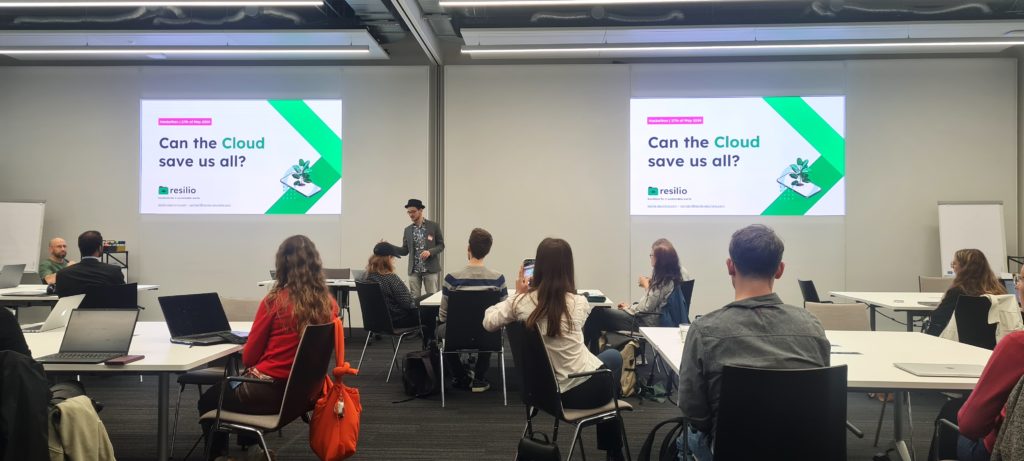
The Challenges
Participants worked diligently throughout the day, applying their skills and knowledge to address pressing issues in digital sustainability. The event culminated in a voting session where everyone had the opportunity to choose the most impactful solution.
Challenge 1 – Web
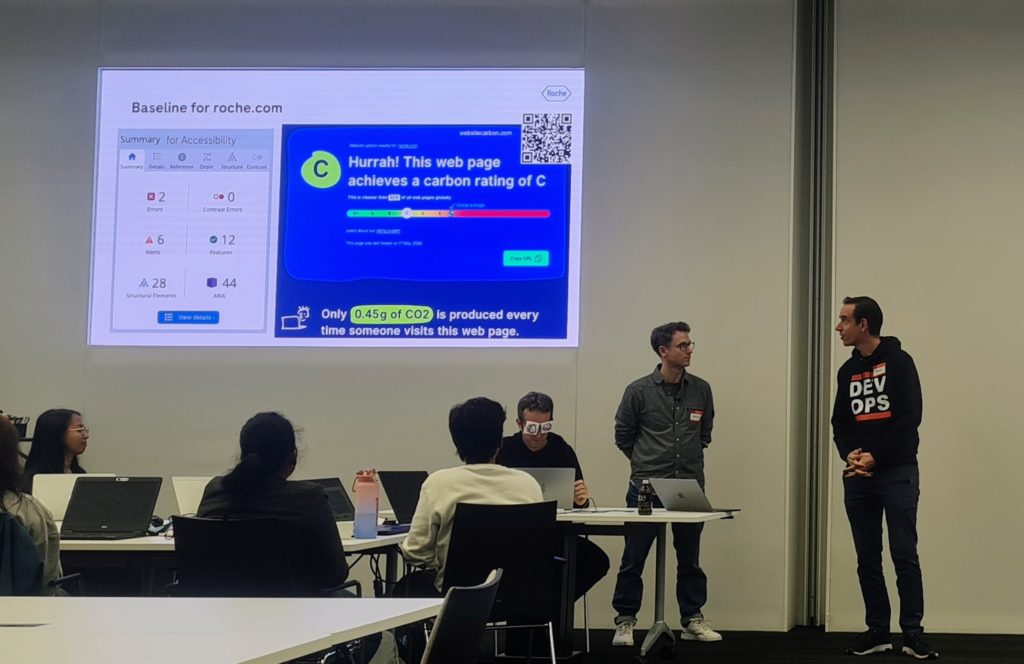
The first challenge involved assessing a real-life website using W3C’s web sustainability guidelines. These guidelines turned out to be highly effective for evaluating a website and developing an action plan in a short amount of time. “It was great to see how quickly you reached first results by just going through the guidelines and checking it with the website at hand,” noted a participating UX researcher. The resulting action plan includes measures for both the website operator and a third-party library provider, leading to an estimated saving of 4t CO2eq.
Challenge 2 – IT Inventory
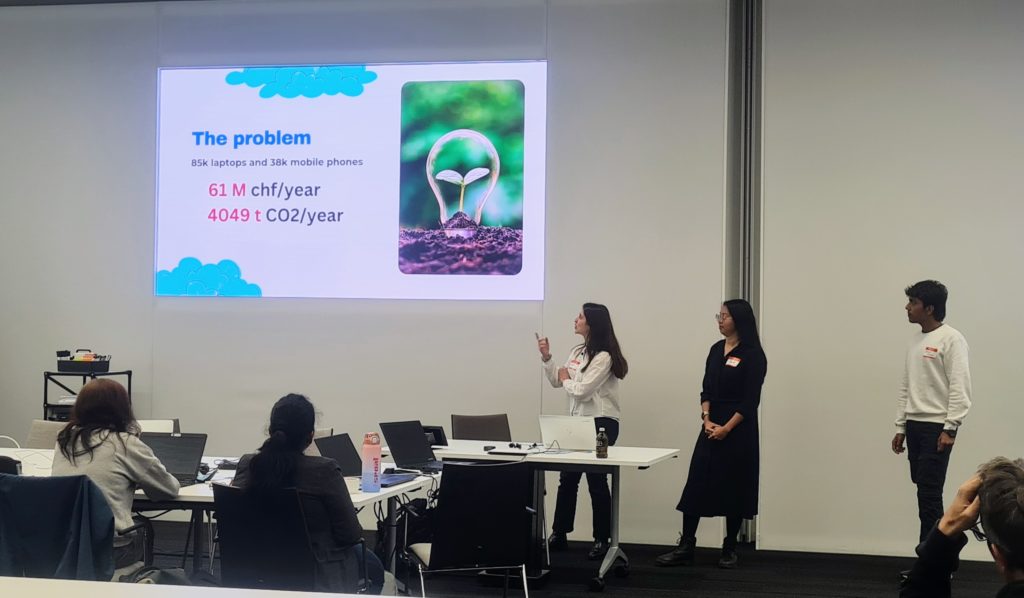
Team 2, Green Bytes, took on the challenge of using Resilio and Service Now to compare the effectiveness of different corporate strategies to reduce the carbon footprint of an IT Fleet. They looked mainly into the Cost and CO2 benefits behind extending employee device lifecycle by 1 year, 2 years vs 10% of employees taking advantage of a BYOD policy. Within the overall challenge itself, the team found there were hidden practical challenges of getting accurate CMDB data and deciding the right level of accuracy to settle on before being able to meaningfully compare strategies. This resulted in a lot of active discussion, discovery with what the different tools strengths are and finally confirmation of just how impactful extending the life cycle of devices can be. They estimated that they could cut emissions by 33% whilst saving the imaginary company 20M CHF (see Marta’s post here for more).
Challenge 3 – Impact Framework

Challenge number 3 was all about measuring the carbon footprint of running complex systems using the Green Software Foundation’s Impact Framework. Six eager participants formed the “Green Guardians” team and found a way to measure the carbon footprint of a large application (Python) running on the Azure cloud. They achieved their objective by cleverly blending existing plugins with new, custom-crafted ones. They even managed to automatically visualise the results on a Grafana dashboard. The next challenges would be to also measure the carbon footprint of the distributed frontends (javascript) to get a holistic picture of the system’s impact.
From a user’s perspective it is fairly simple to understand and easy to get started with the Impact Framework and therefore can be used for small and big system landscapes. Because it is not bound to any platform (public clouds, SaaS solutions, etc.) it is very versatile and can be used to measure all sorts of systems. We recommend using it in heterogeneous environments where different or non-transparent methodologies from different providers fail to give you a holistic perspective.
Challenge 4 – Product Design
Team EcoLoop dived deep into the fourth challenge on “Sustainable Product Design” with the help of sustainable design guidelines, such as:
The guidelines helped not only to look at technical design solutions but to evaluate possible business models to enhance the sustainability of products.
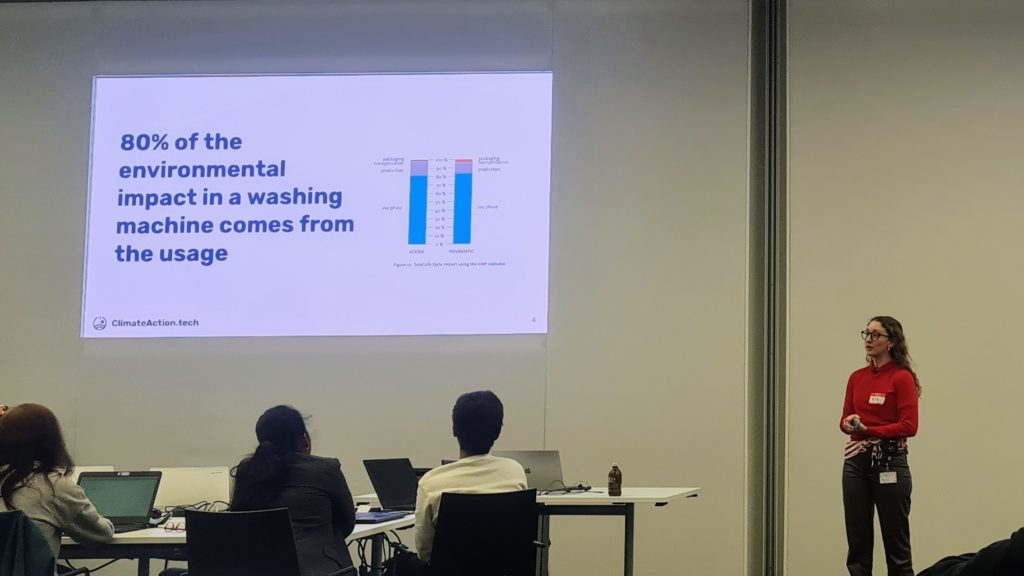
The team found that traditional IT devices, like laptops and phones, primarily impact the environment during manufacturing. Key opportunities were identified in material selection and extending device lifespan through repairability and component replacement. Despite market presence, supporting business models like Fairphone have not gained significant traction.
In contrast, the environmental impact of IT-integrated appliances, such as washing machines, is highest during the use phase. The team developed an Intelligent Wash Machine, a pay-per-wash service, which reduces emissions during use and extends product lifespan through repair services. This solution demonstrated significant environmental benefits through innovative technical and business models.
What about the winners?
🏅 Congratulations to our winning team, The Green Guardians! After seeing all final pitches, the participants, coaches and organisers submitted anonymous votes to select the winner. It was a close call for first place, but the Green Guardians managed the win with their innovative plugin for the Green Software Foundation’s Impact Framework, showcasing the ease of implementation and the ability to measure environmental intensity for a server in Switzerland in real time. As a reward, they won an exciting visit to a Climeworks carbon air capture facility in Switzerland to get an insider view of how this emerging climate technology works!
Voices from the Hackathon
Here’s what some of our participants and sponsors had to say about the event:
“I had an amazing time participating in the Hackathon! It was inspiring to see so many innovative ideas and dedicated individuals coming together to tackle some of our planet’s biggest challenges.” – Janhavi Jadhav, MES Engineer at Lonza (Participant)
“It was inspiring to meet so many people interested and involved in digital sustainability.” – Louiselle Morand Salvo, UX Designer at Swiss Marketplace Group (Participant)
“What’s better than a Hackathon to demonstrate to IT professionals what they can do and offer hands-on solutions to real life problems” – Amael Parreaux-Ex, CEO of Resilio (Sponsor)
A note from the organisers
We learned a lot from organising the hackathon. If you’d like to do something similar in your city, get in touch with any of the organising team on the CAT Slack (Fiona Leibundgut, Andy Mossop, Ken Iseli, Christian Abegg or Panu Kärävä). We’re happy to share what we’ve learned, organising templates and challenge specs to give other organisers a head start!
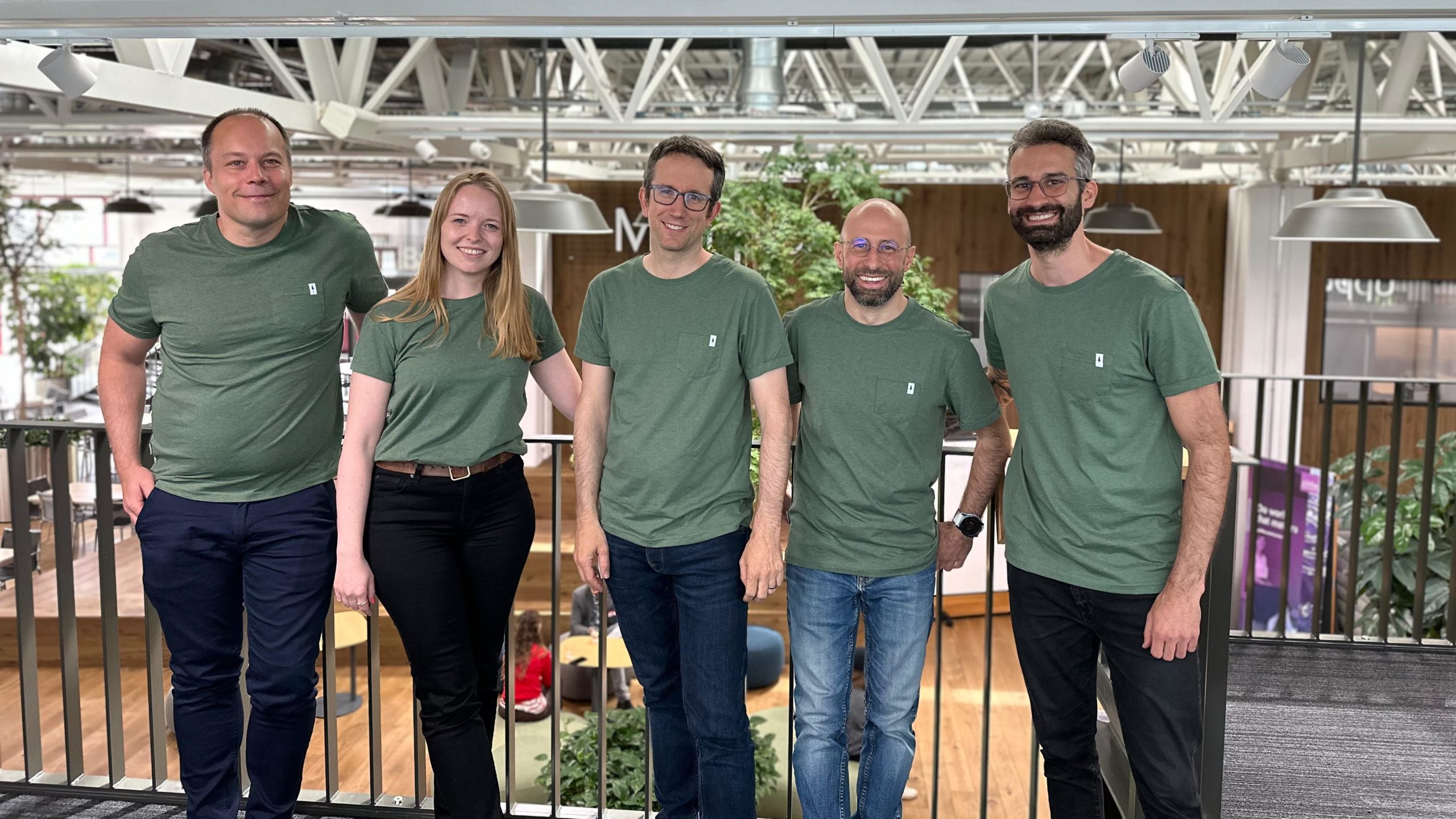
Join us for Swiss CAT Community Drinks
We are excited to see this community grow in Switzerland. To keep the momentum going, we are hosting CAT community drinks on June 27th! Everyone is welcome, so please respond to this invite if you would like to join. 🌿🌍
A heartfelt thank you to everyone who participated, the dedicated hackers, and our incredible coaches. Your passion and commitment to making a positive change are truly inspiring. 🌱💡
🤝 A huge shoutout to our sponsors for their support and making this event possible: Zühlke, Resilio, ServiceNow, Climeworks, and SparkIT Consulting.
Let’s continue to grow our knowledge and communities in green IT and digital sustainability. See you at the next event! 🌱
This project is part of the Mini Grants program. If you would like to apply for funding during the next round of mini grants, please fill out this form (projects are evaluated every three months). To learn more about the process and how we evaluate projects, check out our Mini Grants Outline page.